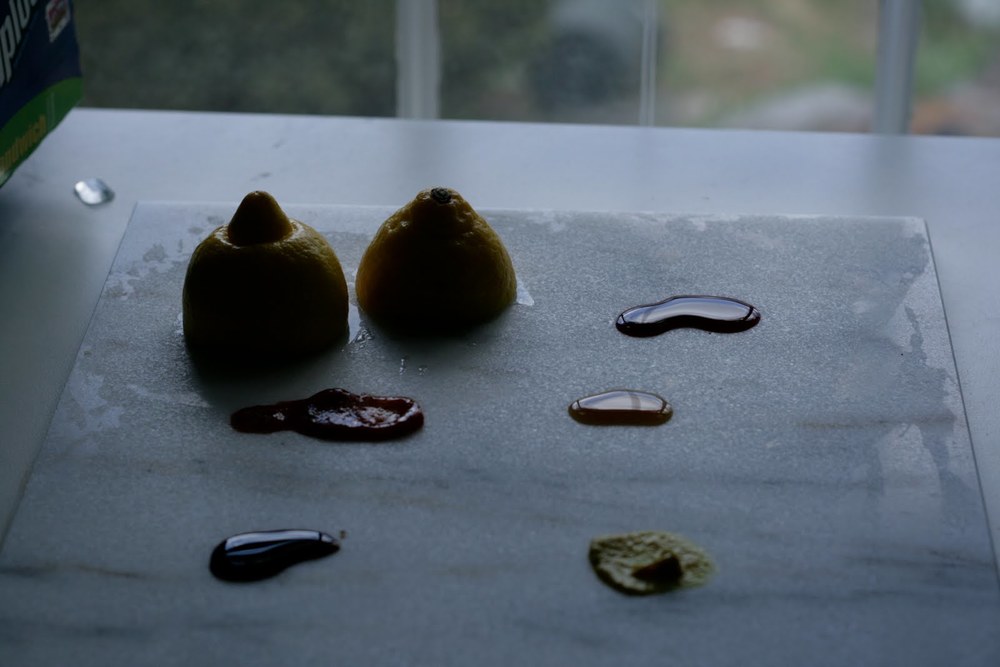A reader asks:
"Hi there, I am house sitting for some friends whose kitchen counters are (I believe) a type of dark slate.I acidentally left a paper towel soaked in lemon juice (I was making lemonade) on the counter and now it seems as though it has etched into the counter...the stain is very noticeable and cleaning it just stripped the sealer!! What can I do? Does it need to be resurfaced?" Thanks for your help. (name withheld)
Dearest Name Witheld,
It's not your fault - who, really, would even be able to germinate the thought that lemon could possibly etch a hard countertop material? VERY few. Etching is different than staining, and you may want to tip off the homeowner that they should attempt to find solutions for the etching problem.
 Image from countertopnetwork.comTell them what substance caused the problem (was it only lemon juice?) How much lemon juice and how long was it sitting on the countertop? What did you do after you saw it/how did you attempt to clean it up? That will be helpful information.
Image from countertopnetwork.comTell them what substance caused the problem (was it only lemon juice?) How much lemon juice and how long was it sitting on the countertop? What did you do after you saw it/how did you attempt to clean it up? That will be helpful information.
Beyond that, I am not a stone expert, and there are countless types of stone countertop materials which makes it impossible to understand the properties of all of them.

I cannot say if the etch marks can disappear via a rejuvenation of the countertop or not, but that is one method that might be suggested to the homeowners.
Countertop durability is no joke. A great looking countertop may just be waiting for the chance to turn on the homeowner...just because it can!
A few tips:
- Get large samples of the countertops you are considering
- Put the sample through substance testing: add dabs of ketchup, wine, oil, lemon, wine vinegar, worsc sauce, mustard, more
- Add those substances to one half of the sample, taping it off in half so that the original side may be compared to the side with substances on it
- After 48 hours, remove the substances and view the good (or bad) behavior of the countertop sample
Purchase accordingly!
Sears are applied on to many types of countertop surfaces, and they work very well as a rule. One aspect of using a sealer makes me nervous...it is often difficult to tell when the sealer has been worn away from use. The length of time that a sealer will last depends on:
the properties of the stone
the sealer
food products
other products having a home on the countertop or moving on/off/around the top
lifestyle use pattern (light/heavy use/in between.)
When should a sealer be reapplied? No one can advise a precise date based on the above variables, which partially defines the risk of installing porous countertop materials.
So, dear Namewithheld, it is not your fault...you had no idea of the properties of the countertop and unless you are a geologist or stone specialist, it's called an accident.

